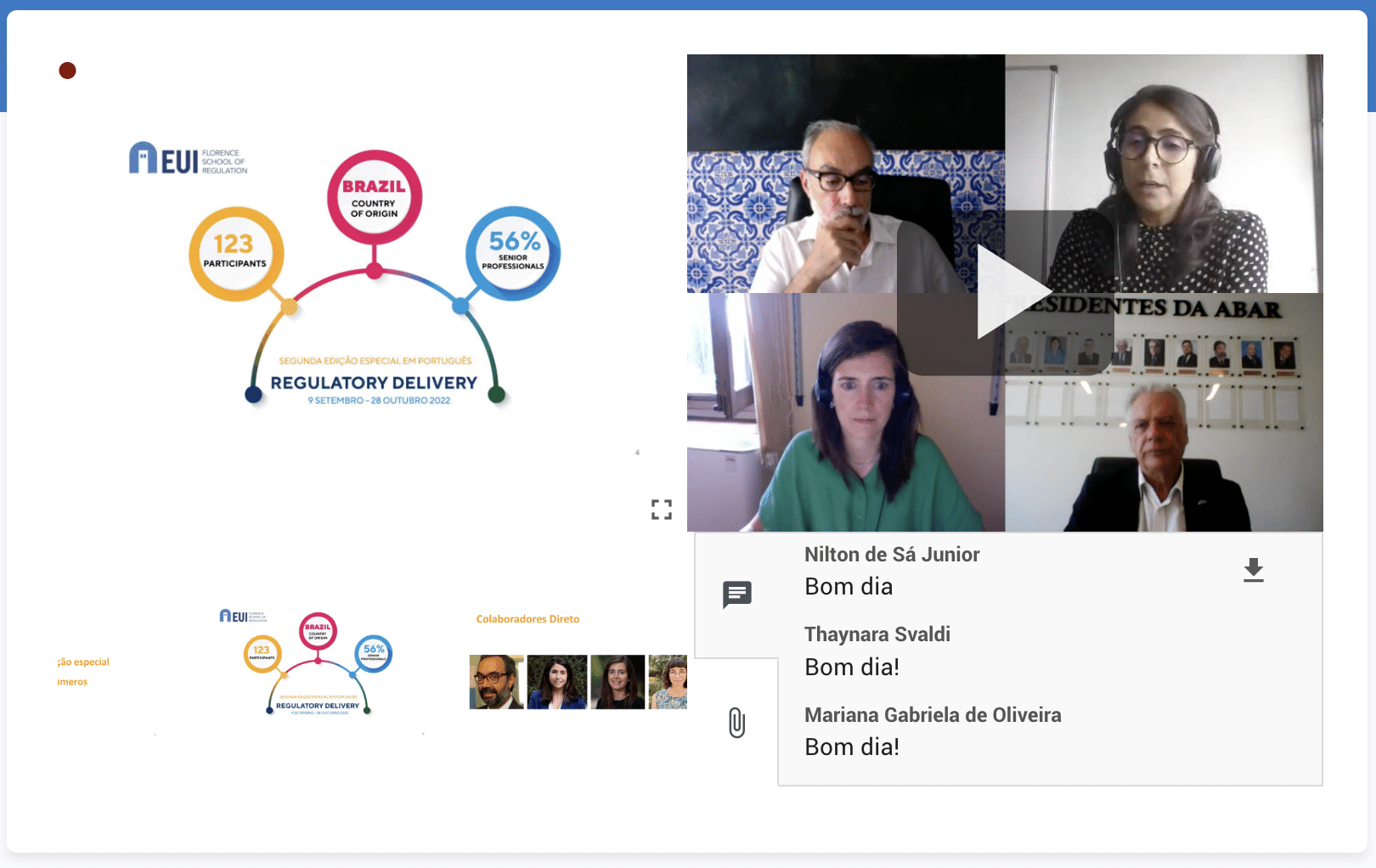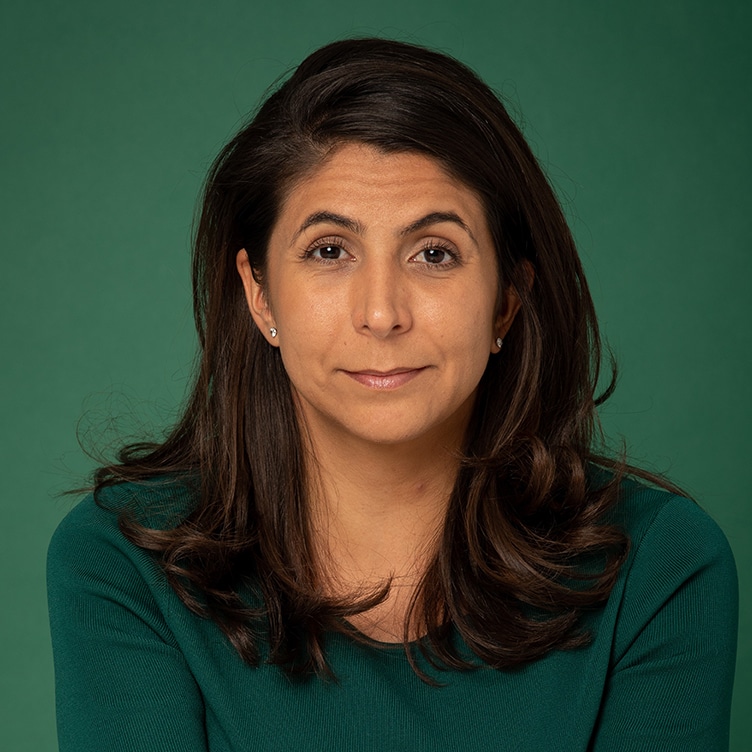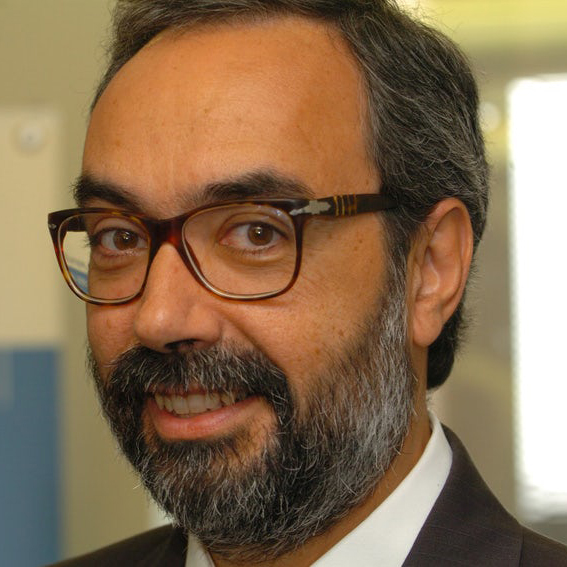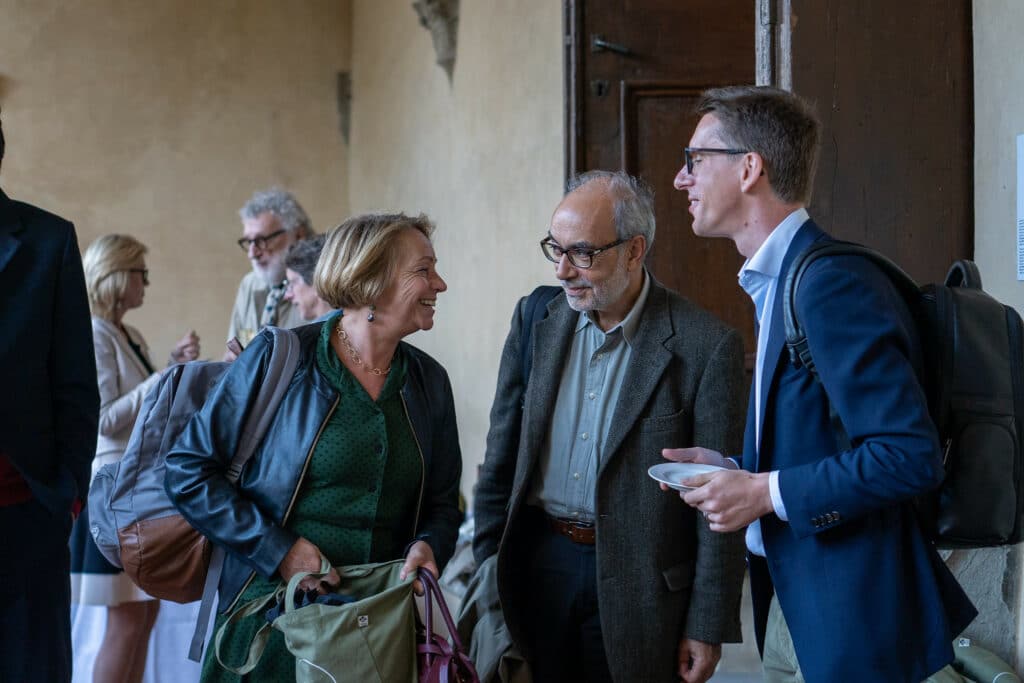Gathering regulators worldwide to rethink the governance
This is the fourth installment of the Topic of the Month "Back to school: exploring FSR training"
The genesis of the online course on Regulatory Delivery
Among all the courses within the diversified FSR portfolio, the online course on Regulatory Delivery aimed to be international from its conception. The genesis of the Regulatory Delivery comes from a Memorandum of Understanding signed in 2018 between the Florence School of Regulation and ANEEL – the Brazilian national regulatory agency for electricity markets. However, despite its starting point, the ambition of the Regulatory Delivery had no territory boundaries restricted to Italy or Brazil. During its 4th edition from 2019-2022, this online course became truly international, reaching an audience of more than 400 participants coming from 36 different countries. Moreover, the success of the course led to a parallel project with ABAR – Brazilian Association of the Regulatory Authorities, which supported the translation of the entire course into Portuguese to be assessed by regional regulatory authorities. Following the experience of the Regulation for Sustainable Development Goal 7 (where the reading materials and the video lecture subtitles were produced in Spanish and French), Regulatory Delivery was the first FSR online course fully produced and offered in Portuguese.

Goals and target audience: gathering regulators worldwide
The Regulatory Delivery was designed primarily for people working in regulatory agencies worldwide. The purpose was to rethink the governance for better regulation in a scenario where the energy (green) transition has become a mainstream policy. The ultimate aim was to provide a toolkit for regulators to go beyond the old “consumers and competition dichotomy” regulatory model. There was – and still is – a need to embrace procedures that would allow regulation to keep up with the dynamic scenario of energy decentralization, digitalization, and democratization based on recognizing output, outcomes, and continuous delivered assessment.
Structure: from theory to best practices and implementation
The Regulatory Delivery was divided into seven weeks of intense knowledge transference and exchange to allow a profound reflection on the old and new models of doing regulation. For the first five weeks, the theoretical classes were followed by case studies illustrating solutions implemented within and outside the EU. During the last two weeks, participants had the opportunity to develop a final project within a group with diverse national backgrounds, where they had to simulate a regulatory delivery project to solve emerging energy transition issues.
These are some examples of course modules by week: in week 1, we introduced the concept of Regulatory Delivery theory on its what, how, who, and why questions & answers. In week 2, Alberto Pototschnig covered aspects of economic assessment, revealing the complexities of modelling step-by-step. In week 3, the recently appointed President of the European University Institute, Patrizia Nanz, introduced the varieties of methods of social evaluation that go beyond traditional modes of public consultation. In week 4, Leigh Hancher led lessons on the balance between regulation, competition, and risks of judicial review. In week 5, Eric Brousseau opened the box of technology as an object of regulation but also as a means to assess regulation, having the course concluding with different methods for assessing regulatory delivery as a learning machine.
From a Platform to a community learning experience
By gathering regulators worldwide, the Regulatory Delivery was not only an online platform course for capacity building but much more! It became a large community of connecting regulators from northern and southern counties, eastern and western traditions, all crossing the same challenges of the energy transition and experimenting with different models for economic assessment, social evaluation, regulatory proposals, or the use of technology to monitor and assess outputs and outcomes. The diversity and high level of expertise involved in rethinking the Regulatory Delivery in time of transition is what made this course a unique experience.







